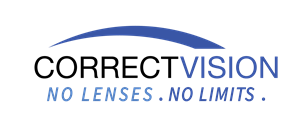The Best Food for Eye Health
 Good vision affects the quality of life for youngsters as well as seniors. One of the best things you can do to preserve your vision is to practice sensible eating habits. A diet packed with antioxidants is the first step toward maintaining good eyesight.
Good vision affects the quality of life for youngsters as well as seniors. One of the best things you can do to preserve your vision is to practice sensible eating habits. A diet packed with antioxidants is the first step toward maintaining good eyesight.
When cells in the body consume oxygen, they produce unstable molecules called free radicals. If left unchecked, free radicals can contribute to a number of diseases, including degenerative eye disease, liver problems, emphysema and heart disease. Antioxidants are nutrients that bind with and neutralize free radicals, thereby minimizing cell damage.
Antioxidants safeguard your eyes from damage caused by air pollution, sunlight and cigarette smoke. They also help protect against developing more serious eye diseases such as glaucoma, cataracts, night blindness and macular degeneration, the most common reason for vision loss in older people.
You can play an active role in keeping your eyes healthy by eating nutrient-rich foods that reduce your risk of eye disease. Following are some of the best foods to eat to keep your eyes in tip-top shape.
Orange Foods
Foods with an orange hue contain the antioxidant beta-carotene, which converts to Vitamin A. Vitamin A protects the retina and cornea, helps prevent night blindness and dry eyes and reduces the risk of eye infections. These foods are rich in Vitamin A:
- Carrots
- Eggs
- Pumpkins
- Sweet potatoes
- Squash
- Cantaloupe
- Apricots
Leafy Greens
Lutein and zeaxanthin are antioxidants that guard against cataracts and macular degeneration. These antioxidants penetrate the lens and retina of the eye and are believed to protect the eyes by absorbing harmful visible light. Leafy greens are packed with lutein and zeaxanthin:
- Spinach
- Kale
- Collard greens
- Broccoli
- Avocados
- Brussels sprouts
Fatty Fish
Fish is rich in DHA (Docosahexaenoic acid), an omega-3 fatty acid found in the retina. Research shows that low levels of DHA are linked to dry eye syndrome, and that omega-3 stimulates vision development in infants as well as fights inflammation. The following foods are good sources of omega-3:
- Salmon
- Tuna
- Trout
- Sardines
- Mackerel
- Anchovies
- Halibut
- Flounder
Vitamin C
Vitamin C promotes healthy eye tissue and blood vessels. Research shows that it reduces the risk of cataracts and helps slow the development of macular degeneration. Here are some foods loaded with Vitamin C:
- Tomatoes
- Grapefruit
- Strawberries
- Papaya
- Oranges
- Green peppers
- Bananas
Vitamin E
In combination with other antioxidants, Vitamin E works to slow the progression of macular degeneration and delay the formation of cataracts. The body does not naturally produce Vitamin E, so it is important to include foods that have a high contencentration of it into your daily diet:
- Sunflower seeds
- Wheat germ
- Almonds
- Pecans
- Vegetable oil
- Peanuts
- Peanut butter
- Cereals
- Spinach
- Avocados
Trace Minerals
Zinc and selenium help improve eye health by boosting the body’s ability to absorb Vitamin A (zinc) and Vitamin E (selenium). Excellent sources of zinc include:
- Oysters,
- Tofu
- Turkey
- Eggs
- Seafood
- Peanuts
- Whole grains
High-quality sources of selenium include sunflower seeds, oats, brown rice and garlic.
CorrectVision Laser Institute is one of Florida’s most advanced vision correction practices with extensive experience in eye health. Our goal is to open your eyes to the world of great vision by offering unparalleled expertise and the most advanced technology available. Contact us today for a consultation with one of our South Florida eye specialists, located in Hollywood, Weston and Pembroke Pines!


